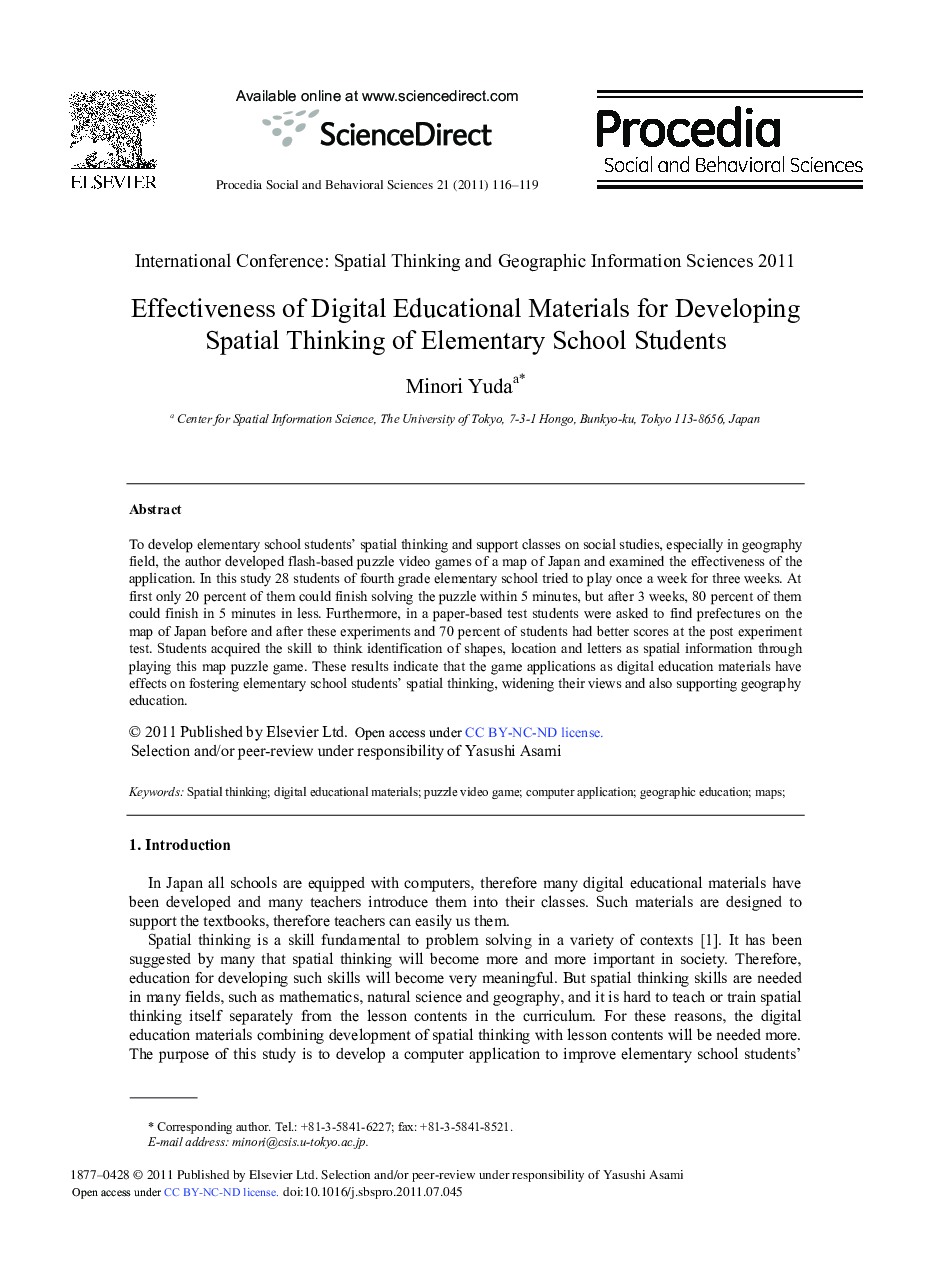| Article ID | Journal | Published Year | Pages | File Type |
|---|---|---|---|---|
| 1123933 | Procedia - Social and Behavioral Sciences | 2011 | 4 Pages |
To develop elementary school students’ spatial thinking and support classes on social studies, especially in geography field, the author developed flash-based puzzle video games of a map of Japan and examined the effectiveness of the application. In this study 28 students of fourth grade elementary school tried to play once a week for three weeks. At first only 20 percent of them could finish solving the puzzle within 5 minutes, but after 3 weeks, 80 percent of them could finish in 5 minutes in less. Furthermore, in a paper-based test students were asked to find prefectures on the map of Japan before and after these experiments and 70 percent of students had better scores at the post experiment test. Students acquired the skill to think identification of shapes, location and letters as spatial information through playing this map puzzle game. These results indicate that the game applications as digital education materials have effects on fostering elementary school students’ spatial thinking, widening their views and also supporting geography education.
